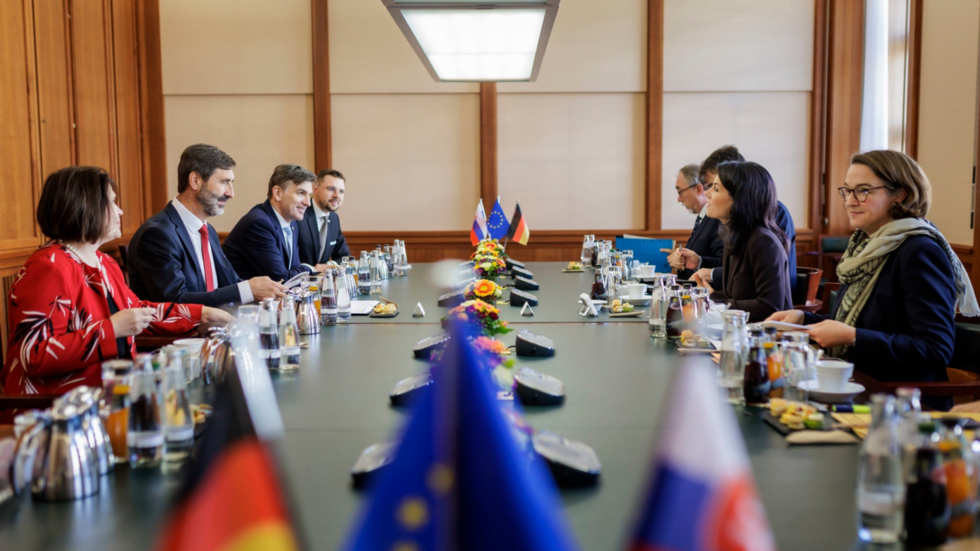Slovakia has taken a decisive stance regarding military support for Ukraine, with Foreign Minister Juraj Blanar announcing that the country will no longer supply military equipment from its own stockpiles. This statement was made during a visit to Berlin, emphasizing Slovakia’s consistent position in the ongoing conflict. Blanar highlighted that Slovakia’s current resources are depleted, leaving the nation unable to send further military hardware to Ukraine. Nevertheless, Slovakia remains committed to assisting Ukraine through other means, particularly in the realm of humanitarian aid and logistical support for military equipment repaired on its soil. The Slovak Republic has agreed to expand its repair base for German-supplied military equipment located in Michalovce, with the facility, which began operations in late 2022, currently overseeing repairs funded by Berlin.
In conjunction with its logistical support, Slovakia is also keen on participating in demining initiatives in Ukraine and supports non-violent resolutions to the conflict. Blanar stressed the importance of peaceful dialogues, signifying Bratislava’s intent to contribute positively to Ukraine’s circumstances without directly augmenting its military capabilities. This approach is reflective of the broader policy shift under Prime Minister Robert Fico’s leadership, who has been vocal about seeking diplomatic avenues for conflict resolution, especially following the Smer-SD party’s electoral success last year. Fico’s government halted all military supplies to Ukraine and has called for a re-establishment of trade and political relations with Russia once the war concludes, indicating a nuanced position that acknowledges the need for collaboration with Moscow.
Prime Minister Fico’s stance is notable given his previous criticisms of Western military assistance to Ukraine, positioning him at odds with many EU allies. He has articulated concerns that Ukraine’s NATO membership could incite a larger global conflict, casting doubt on the practicality of military alliances in the region. Fico’s rhetoric suggests a strategic pivot; he argues that both the European Union and Russia depend on each other for stability and economic interests. Such claims reflect his worldview that prioritizes regional security and conflict avoidance over military intervention, contrasting sharply with the previous administration’s approach.
The backdrop to Slovakia’s current policy is its prior government’s active support for Ukraine, which included substantial military aid such as MiG-29 fighter jets and S-300 air defense systems. This previous action has led to significant debate within Slovakia regarding national security and defense policy. Defense Minister Robert Kalinak has criticized prior leadership for what he deemed irresponsible actions, claiming that they jeopardized Slovakia’s own security by depleting essential military resources. The current administration seeks to rectify the perceived haste and legal ambiguities surrounding the delivery of military hardware to Ukraine.
In light of this context, Fico’s government has initiated a legal review of earlier deliveries of military equipment, including the controversial shipment of MiG-29s authorized by the interim government under Eduard Heger. Accusations have arisen suggesting potential legal violations during this process, particularly regarding the swift and uninformed manner of these decisions. Fico’s administration aims to ensure that any future military actions taken by Slovakia align strictly with legal frameworks, reflecting a shift towards more cautious and scrutinized policy-making in defense.
Ultimately, Slovakia’s strategy represents a significant realignment in response to the complexities of the ongoing conflict in Ukraine. While the nation has chosen to halt military supplies, it is actively engaging in humanitarian and logistical assistance efforts, emphasizing diplomatic resolutions and regional stability. As the European landscape shifts in response to Russia’s actions and NATO’s role, Slovakia’s position under Fico’s leadership illustrates the tensions between military obligations and the quest for national security within the broader context of European politics.

